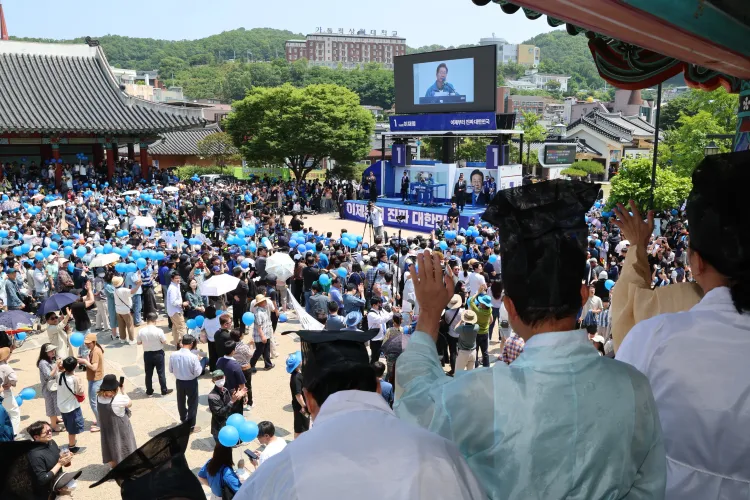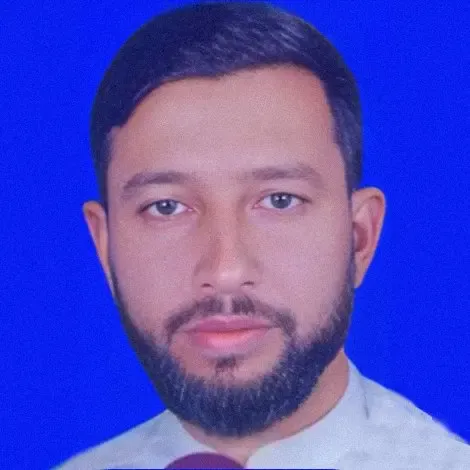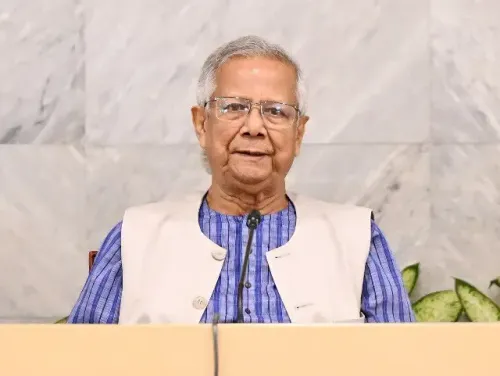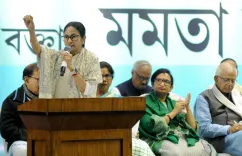Will South Korea's Presidential Rivals Manage a Final Campaign Surge?

Synopsis
Key Takeaways
- Candidates are making final efforts to secure votes ahead of the election.
- Lee Jae-myung emphasizes patriotism and support for veterans.
- Kim Moon-soo focuses on law and order, positioning himself as the moral choice.
- Lee Jun-seok aims to represent younger voters and challenge the established two-party system.
- The election follows the controversial removal of a former president, adding tension to the race.
Seoul, June 1 (NationPress) With only two days left until the South Korean presidential election, candidates intensified their final strategies to solidify their support and sway undecided voters. Lee Jae-myung from the liberal Democratic Party campaigned in his hometown of Andong, located around 190 kilometers southeast of Seoul, before engaging with voters across the broader Gyeongsang region, as reported by Yonhap news agency.
He aimed to appeal to even a handful of constituents in the area, traditionally known for its conservative leanings where his party struggles to gain traction.
At a rally in Andong, Lee emphasized the city’s deep personal relevance, asserting, "Andong is where I began and end."
He commenced the rally with a moment of silence for the victims of a Navy patrol aircraft crash that occurred in Pohang, about 270 kilometers southeast of Seoul.
Earlier in the day, Lee committed to ensuring fair treatment for patriots and veterans who have served the nation, stating, "The fundamental duty of the state is to uphold patriotism in an honorable manner." He pledged to establish independence, national defense, and democracy as foundational pillars to enhance recognition and treatment for these individuals, along with improved medical services and financial support.
On the other hand, Kim Moon-soo from the conservative People Power Party campaigned in greater Seoul on Sunday, starting at Gwanggyo New Town, Gyeonggi Province, aiming to solidify his support in a region where he previously served as governor.
Kim asserted his moral superiority over Lee, stating, "If someone who is certain to be imprisoned becomes president, this country will become a sanctuary for criminals."
"Only your vote can guide the nation back to the right track and establish a fair democracy," he urged.
Lee Jun-seok of the smaller conservative New Reform Party also campaigned at Dongtan Lake Park in Hwaseong, 33 kilometers south of Seoul, making a final effort to win over voters, with plans for a rally in Seoul later.
On his Facebook page, Lee reaffirmed his decision to compete independently, without merging candidacies with Kim.
"I have persevered to this day, overcoming the mockery that I wouldn't finish the race," he expressed. "There is a clear reason for my journey thus far—my dream is to create a political landscape where the voices of the younger generation are heard, and to form a political faction that stands strong against the entrenched two-party system."
South Korea is set to elect a new president on Tuesday following the removal of former President Yoon Suk Yeol due to his brief imposition of martial law in December.










